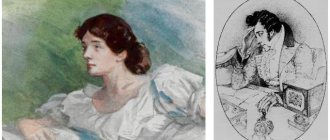Anacharsis is one of the most glorious sons of Scythia. Ancient authors preserved a relatively large variety of interesting and valuable information about him. Here are biographical data, stories about his travels and meetings with interesting people, philosophical conversations, popular sayings, etc. After all, Anacharsis, as ancient authors report, was one of the seven sages of the ancient world. His life was bright and tragic. A highly educated philosopher, he traveled a lot, became acquainted with the best achievements of Hellenic culture and, returning to his homeland, died at the hands of his brother, King Savlius. And his name was consigned to oblivion in Scythia. What do we know about Anacharsis? Firstly, it should be emphasized that this is a completely real historical figure. Some researchers believed that based on the data of Herodotus, it is impossible to judge whether Anacharsis really existed or was invented. But Anacharsis, in the descriptions of Herodotus and other ancient authors, appears before us as a completely real person, as he was. Let us turn to Herodotus’s information about Anacharsis: “The Scythians also diligently avoid using the customs of other peoples, as the fate of Anacharsis showed. After he visited many lands and learned a lot of wisdom in each of them, he returned to the location of the Scythians. The Scythians, like other peoples, also stubbornly avoid foreign customs, moreover, they eschew not only the customs of other peoples, but especially Hellenic ones. Anacharsis saw many countries and showed his great wisdom there. On the way back to the Scythian borders, he had to land at Cyzicus, sailing through the Hellespont. At this time, the people of Cyzicenae were just solemnly celebrating the holiday of the Mother of the Gods. Anacharsis made the following vow to the goddess: if he returned home healthy and unharmed, he would offer her a sacrifice according to the ritual that he had seen among the Cyzicens, and would establish an all-night festival in her honor. Returning to Scythia, Anacharsis secretly went to the so-called Hylea (this area lies near the Achilles's lists and is all covered with a dense forest of different types of trees). So, Anacharsis went there and performed the full image of the festival, as he had seen in Cyzicus. At the same time, Anacharsis hung small images of the goddess on himself and beat the tympanum. Some Scythian spied on the performance of these rituals and reported to King Savlius (brother of Anacharsis. - K-Ch.). The king himself arrived at the place and as soon as he saw that Anacharsis was celebrating this holiday, he killed him with an arrow from a bow... Thus, he ended his life unhappily This man’s life was because he accepted foreign customs and communicated with the Hellenes. Loyalty to their gods and their customs was considered an indispensable duty of every Scythian. Apostasy was severely punished. In Olbia, Herodotus was told about the tragic fate of the Scythian king Skilos. He was the son of King Ariapif and a Greek woman, and spoke and wrote Hellenic. “Reigning over the Scythians, Skil did not at all like the way of life of this people.” In Olbia, where he often visited, he had a luxurious palace in which one of his wives, a local native, lived. In the city, Skil dressed in Greek, followed Hellenic customs, performing sacrifices according to Greek ritual. He even took part in the Bacchic sacraments. The Bacchic frenzy of the Greeks was condemned by the Scythians. Skil's fellow tribesmen who visited Olbia once saw him in a state of ecstasy. They were indignant. This was followed by a rebellion against the king. Skil fled to Frankia, but after some time he was handed over to the new Scythian king, who ordered his head to be cut off. “The Scythians hold on to their customs so tightly, and they subject those who borrow others’ to such severe punishment.” And now if anyone asks about Anacharsis, the Scythians claim that they do not know about him because he took advantage of other people’s customs.” The fact that Anacharsis was known not only to Herodotus, but also to contemporary readers is evidenced by the following phrase from general characteristics of Pontus the Euxine - “after all, there is not a single tribe in Pontus that would stand out for wisdom and we do not know a single learned man except the Scythian tribe and Anacharsis.” In the work of Diogenes Laertius “The Lives and Teachings of Those Famous in Philosophy” there is a special section “Scythian Anacharsis” with specific information about the Scythian sage. We read in it the following: “The Scythian Anacharsis was the son of Gnur and the brother of Caduid, king of the Scythians. His mother was Greek, so he spoke both languages. He wrote about Scythian and Hellenic customs, about means of living cheaply, and eight hundred poems about military affairs. Distinguished by his freedom of speech, he gave rise to the formation of a proverb about the “Scythian way of life.” We further learn that Anacharsis around 594 B.C. arrived in Athens and visited the famous philosopher Solon. “Hermippus says that when he arrived at Solon’s house, he ordered one of the servants to report to Solon that Anacharsis had come to him, wanting to look at him and become his guest. Solon conveyed that relations of hospitality are established by everyone in his homeland, to which Anacharsis replied that Solon is in his homeland and he should enter into relations of hospitality. Solon accepted him and made him his greatest friend. Anacharsis stayed in Greece for more than thirty years until the death of Solon in 559 BC. During this time he visited Lesvos, Thebes, Corinth, Phocis, Boeotia, Sicily, Egypt, and Persia. According to ancient sources, Anacharsis became so famous for his intelligence and resourcefulness that he became a member of the Areopagus, the supreme governing body of Greece. He actively performed at the Olympic Games, receiving top awards more than once. After the death of Anacharsis, his image began to be idealized. Gradually, the image of a Scythian sage appeared in ancient literature, who, despite his barbarian origins, managed to rank with the best Greek philosophers. The idealization of the image is associated with the name of the ancient Greek historian of the 4th century. BC. Ephora. Anacharsis left a rich legacy, preserved through the efforts of ancient writers. This information is of value not only for philosophers; they are interesting for their wide historical and ethnographic material; help to more fully understand the spirit and flavor of that time, the structure of the everyday life of the Scythians, the criteria of spiritual and moral values, human psychology, etc. Let's get acquainted with the basic information about this famous sage. Lucian of Samosata, famous satirist of the 2nd century BC. introduces us to the first steps of Anacharsis in Athens. In the story “The Scythian or the Guest,” he talks about the meeting of Anacharsis with another famous Scythian, Toxaris. "1. Anacharsis was not the first to arrive from Scythia to Athens, guided by the desire to become acquainted with Hellenic education. Before him arrived Toksaris, a wise man, distinguished by a love of beauty and a desire for the noblest knowledge, but who did not come from a royal family, but from a crowd of simple Scythians. This Toxaris did not even return to Scythia, but died in Athens and a little later was even recognized as a hero; the Athenians offer sacrifices to him as to a foreign Doctor; He received this name after being recognized as a hero. Toxaris was still alive when Anacharsis, having just landed, went to Athens from Piraeus. As a foreigner and a barbarian, he felt great embarrassment, not knowing what to do with himself. He did not find anyone who knew his language and in general already repented of his journey and decided, just by looking at Athens, to immediately go back and go back. In this mood, Toksaris meets him, truly like a good genius, already in Ceramics. At first he was attracted by the clothes of his homeland, and then it was not difficult for him to recognize Anacharsis himself, who came from a noble Scythian family...” Another story by Lucian of Samosata, “Anacharsis, or about the gymnasiums,” is built in the form of a conversation between Anacharsis and Solon. The philosophers have the following conversation: Solon: It is quite natural, Anacharsis, that the same kind of activities (gymnastics) seem alien to you and far from being similar to Scythian customs, just as you have many activities that would seem strange to us Hellenes... Anacharsis : And among us Scythians, if someone hits one of their equals, or, having attacked, knocks them to the ground or tears their dress, then the elders impose a great punishment for this, even if the offense is inflicted in front of few witnesses... Anacharsis: however, Solon, I came to you from Scythia, having traveled such a vast expanse of land, and having crossed the Euxine Pontus precisely for the purpose of studying Hellenic laws and getting acquainted with your customs... Anacharsis: where could I, a wandering nomad living in a cart and moving from one land to another, and who has never lived in the city and has not even seen it, to talk about the state structure and teach the settled inhabitants who have been living in it for so long?..” As can be seen from this conversation, Anacharsis studied the state structure and the laws by which the Hellenes live . Regarding laws, as the historian Eunapius said, the Scythian sage said that they are “weaker and thinner than a spider’s web.” Diodorus Siculus talks about the meeting of Anacharsis with Croesus, the Lydian king. “Croesus, having shown them the prosperity of his kingdom and the number of conquered peoples, asked Anacharsis which of the living creatures he considered the bravest. Anacharsis replied that wild animals, because they die courageously for their freedom. Croesus, believing that he was mistaken, asked which of the creatures he considered the fairest. The sage again answered that wild animals, because they live according to the laws of nature. Nature is the creation of a deity, and human laws are the establishment of man, and it is fairer to use what is revealed by God and not by man. The king mockingly said that his answers were based on the Scythian bestial upbringing. In this conversation, as can be seen, Anacharsis sets out the main principles of Stoic philosophy. The ancient literary tradition has brought to us ten letters that allegedly belong to Anacharsis. These writings are imbued with the philosophical views of the Cynics and, as researchers believe, date back to the time of the revival of Cynicism in the 1st century BC. One way or another, the letters attributed to Anacharsis are interesting for information about Scythia, the customs, and morals of the Scythians. They themselves, presumably, are based on reliable information, stories and sayings of Anacharsis himself. In one of the letters, “to the Athenians,” we read the following: “You laugh at my language because it does not clearly pronounce Greek letters. Anacharsis speaks incorrectly among the Athenians, and the Athenians among the Scythians. It is not by language that people differ from people and gain fame, but by their thoughts, just as Hellenes differ from Hellenes. The Spartiate does not speak pure Attic, but his deeds are glorious and commendable. The Scythians do not condemn speech that clarifies what is due, and do not praise that which does not achieve the goal...” Another letter entitled “To Medoc” says: “Envy and fear are great proofs of a low soul: envy is followed by sadness from the well-being of friends and fellow citizens, and behind the fear are hopes for empty words. The Scythians do not approve of such people, but they rejoice in the well-being of others and strive for what they can achieve; and they drive out hatred, envy and other destructive passions.” The letter “To Annon” sets out the principles of an unpretentious life: “My clothing is a Scythian cloak, my shoes are the skin of my feet, my bed is the whole earth, my lunch and breakfast are milk, cheese and fried meat. , water to drink..." In a letter to Tereus, the ruler of Thrace, the author expressed his attitude to the principles of governance: "No good ruler destroys his subjects, and no good shepherd treats his sheep cruelly... It would be better if he spared those who you rule. For if you do not abuse your power to increase your possessions, then your state is strong”... And in the next letter, which is called “To the Tsar’s Son,” the author talks about the inner freedom of man. “You have flutes and purses, and I have arrows and a bow. Therefore, naturally, you are a slave, and I am free, you have many enemies, but I have none. If you want, throwing away the silver, to carry a bow and quiver and live with the Scythians, then you will have the same thing.” Diogenes Laertius introduces Anacharsis' letter to Croesus. The Scythian sage writes: “King of the Lydians, I arrived in the country of the Hellenes to study their customs and activities. I don’t need gold at all; it’s enough for me to return to Scythia a better man. I arrived in Sardis with the sincere desire to please you. Diogenes in his work also collected a whole series of apt catchphrases and sayings of Anacharsis, which are interesting and useful to get acquainted with.
Glory of Anacharsis
He told the Hellenes about simple-minded nomads who pride themselves not on wealth, but on archery accuracy, about those who use the skin of their feet as their shoes, the whole earth as their bed, and the heavenly dome as their temple, who gorge themselves on cheese and meat, and who drink running water and milk. He attacked the Hellenes' desire for luxury. He said that luxury plunges people into the worst of slavery and deprives the wisest laws of meaning, for the rich tear the laws like a web, and the weak and poor become entangled in them and die like flies.
This day went down in the history of Cyzicus. By a special resolution of the people's assembly, the Cyzicians ranked Anacharsis among the seven Hellenic sages and awarded him a wreath of wild olive, planted, according to legend, by Aristeas.
But this was not enough for Cleomenes. He recorded the parables and sayings of Anacharsis. Equipped with his own speculations on the nature of wisdom and the wisdom of nature, Anacharsis's thoughts spread throughout the Hellenic cities.
This is how fame came to Anacharsis. Recently he did not have a name, but now it was repeated along with the names of Pittacus and Thales. Not believing that he had recently been a slave, they came up with the idea that he was the brother of the Scythian king and had come to the Hellenes to teach them his laws. Someone used the name of Anacharsis as a shield, passing off their own thoughts as the wisdom of Anacharsis. In Corinth, a certain potter called for dividing the wealth of the rich and establishing the kingdom of Anacharsis. The rebel was stoned.
Soon there were more people who wanted to see the Scythian sage than there were visitors to the Kyzikian temples. Among them were the Cyrenians, Tarentines, Massaliots, and even the inhabitants of distant Hades, which lies at the entrance to the Ocean, hungry for wisdom.
The grateful Cyzicians elected Cleomenes to the city council, and Anacharsis was given unprecedented honors for a barbarian: on a bronze plaque displayed at the bouleuterium, it was reported that the “great Scythian” - as Anacharsis was officially called - was awarded an honorary statue.
And soon, walking through the agora, Anacharsis could admire his double made of Prokonesian marble. The sculptor depicted the philosopher in trousers and a caftan, which Anacharsis had not worn for a long time. The folds of his forehead and the expression of his eyes reflected the breadth of thought that delighted the Hellenes, akin to the expanse of the steppes, and his craving for nature, the source of reason and justice.








